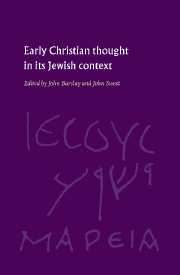Chapter 1 - Introductory Essay
Published online by Cambridge University Press: 22 September 2009
Summary
Some women damage feminist causes by vociferating. Others are quiet, even diffident, and might not, in any case, wish to be reckoned as feminists; but they make the point impressively when they rise to the top, and by sheer ability come to occupy positions of responsibility and influence. Nobody who knows Professor Morna Hooker-Stacey can hesitate as to the category in which she belongs. Before I had met her, I recognized the independent mind of a scholar in her early book, Jesus and the Servant (1959). In it, and later, in The Son of Man in Mark (1967), she risked her reputation by unfashionable views. Subsequently, she devoted much attention to Pauline thought (From Adam to Christ is a collection of such studies between 1960 and 1989), though The Message of Mark (1983) and some of her articles in journals show that she was also continuing to work at material for what emerged in 1991 as her magnum opus, the A. and C. Black commentary on Mark. Since then, her Didsbury Lectures of 1994 expound the meaning of the Cross in all the main writers of the New Testament. In the Pauline area, Professor Hooker is known especially for her variations on the theme of ‘interchange’ in the theology of incarnation – Christ became what we are, that we might become what he is.
- Type
- Chapter
- Information
- Early Christian Thought in its Jewish Context , pp. 1 - 6Publisher: Cambridge University PressPrint publication year: 1996



